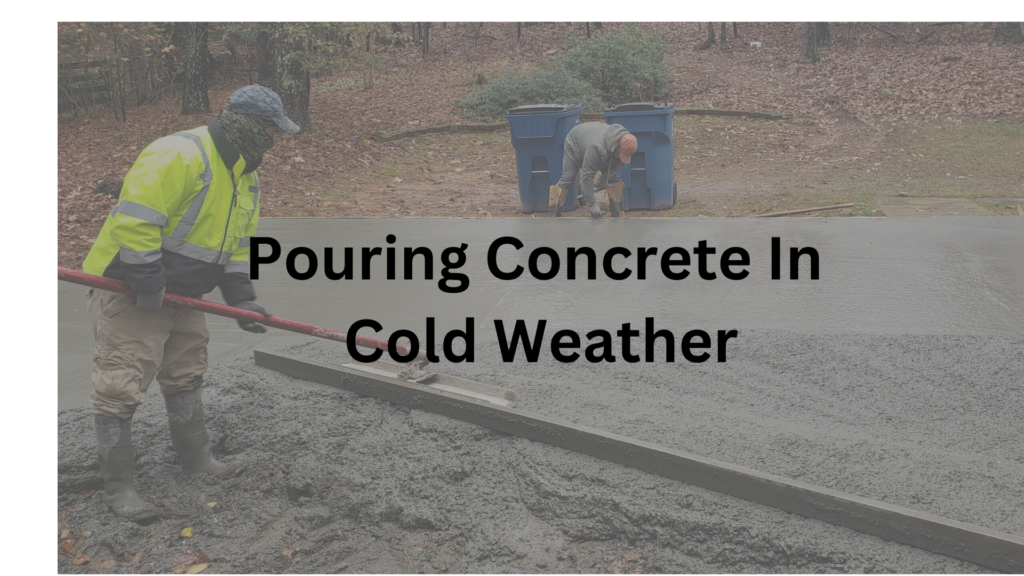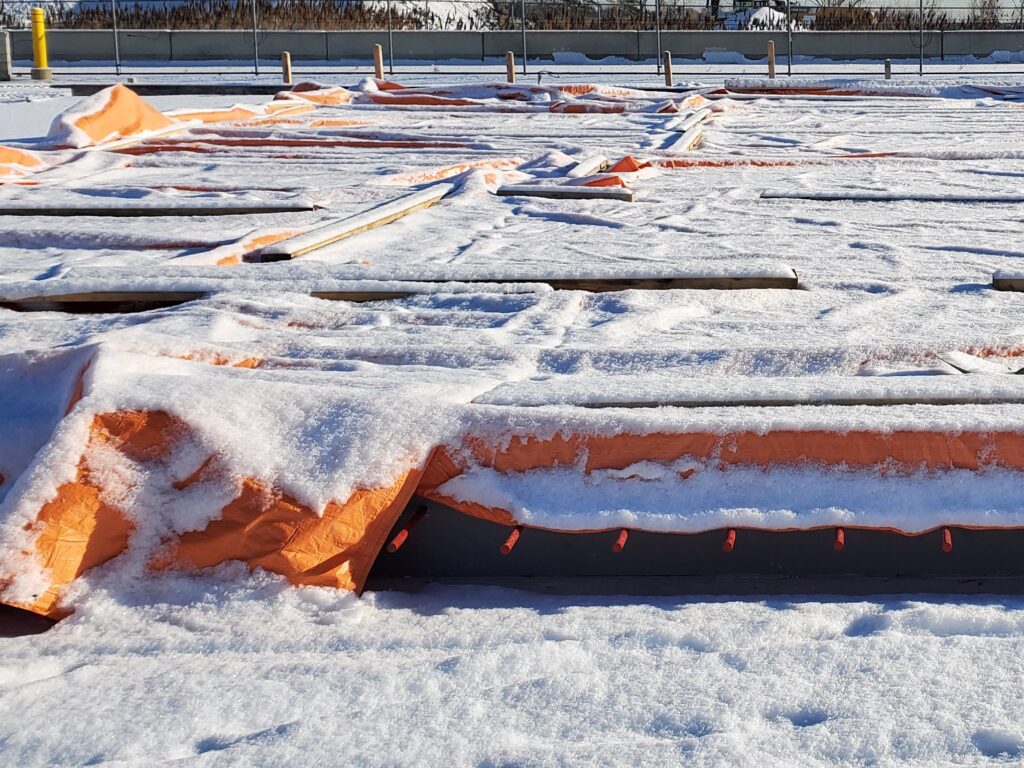Pouring concrete in freezing weather can be a challenging task, but it is not impossible. In fact, with the right preparation and execution, it can be done successfully. The final result will be a strong, durable finished product.
First and foremost, it is important to understand that concrete will not properly cure (harden) when the temperature is below 40 degrees. Therefore, it is crucial to take steps to ensure that the concrete remains above this temperature during the curing process.

How do you pour concrete in low temperatures?
One way to do this is to use insulating blankets or sheets to cover the freshly poured concrete. These blankets help to trap the heat generated by the chemical reactions that take place during the curing process, and can help to keep the concrete above 40 degrees.
Another important factor to consider is the moisture content of the concrete mix. In cold weather, it is essential to use a concrete mix with a lower water-to-cement ratio. This will help to prevent the formation of ice crystals within the concrete, which can weaken the finished product.
It is also important to properly prepare the ground before pouring the concrete. This means removing any snow or ice from the area, as well as ensuring that the ground is adequately compacted. A properly prepared surface will help to ensure that the concrete has a solid foundation. Once the concrete has been poured, it is crucial to keep it protected from the elements.


How to insulate concrete in cold weather.
Insulating concrete in cold weather is an important task that can help to prevent the frost on the surface. This will also help prevent the ground underneath from freezing. This can help to extend the life of the concrete and prevent damage from the freezing and thawing cycle.


There are several steps that you can take to insulate concrete in cold weather:
- Use a concrete sealer: Applying a concrete sealer to the surface of the concrete can help to create a barrier that prevents moisture from penetrating the concrete. This can help to prevent frost from forming on the surface of the concrete and can extend the life of the concrete.
- Install a vapor barrier: A vapor barrier is a layer of plastic or other material that is installed underneath the concrete. This barrier helps to prevent moisture from rising up through the ground and into the concrete, which can cause frost to form on the surface. There are even specialized concrete blankets for sale on Amazon.
- Add insulation: Adding insulation to the ground underneath the concrete can help to keep the ground warm and prevent it from freezing. This can be done by using insulating materials such as foam board or rigid foam insulation.
- Construct a plastic tent around the concrete and use heaters to help warm the concrete until it cures.
By following these steps, you can help to insulate your concrete and prevent damage from cold weather. It is important to take these measures before the cold weather arrives to ensure that your concrete is protected.
What Chemicals Can Help in Cold Weather Pours?
In addition to the steps above, it may also be necessary to use specialized additives in the concrete mix. These can help to increase the concrete’s freeze-thaw resistance and improve its overall durability in cold weather. It’s important to use chemicals to prevent the concrete from freezing and to ensure that it cures properly. Some common chemicals that are used for this purpose include calcium chloride, which helps to accelerate the curing process. Air-entraining agents, which help to create tiny air bubbles in the concrete that prevent it from cracking due to freezing. Other chemicals that may be used include water reducers. These help to make the concrete more workable in cold temperatures. Antifreeze admixtures can help to prevent the water in the concrete from freezing.
Plan Carefully and Good Luck
Pouring concrete in freezing weather requires careful planning and attention to detail. By taking the necessary precautions and using the right techniques, it is possible to achieve a strong, durable product, even in the coldest conditions.
Be sure to check out some of our other blog posts where we answer some of the most commonly asked questions from our customers.
Which is better: concrete or asphalt driveway?
How long does it take concrete to cure?
If you need a concrete contractor with experience pouring concrete in freezing conditions please reach out to us. We would love to help you. GA Concrete and Grading has been in business since 1965.
